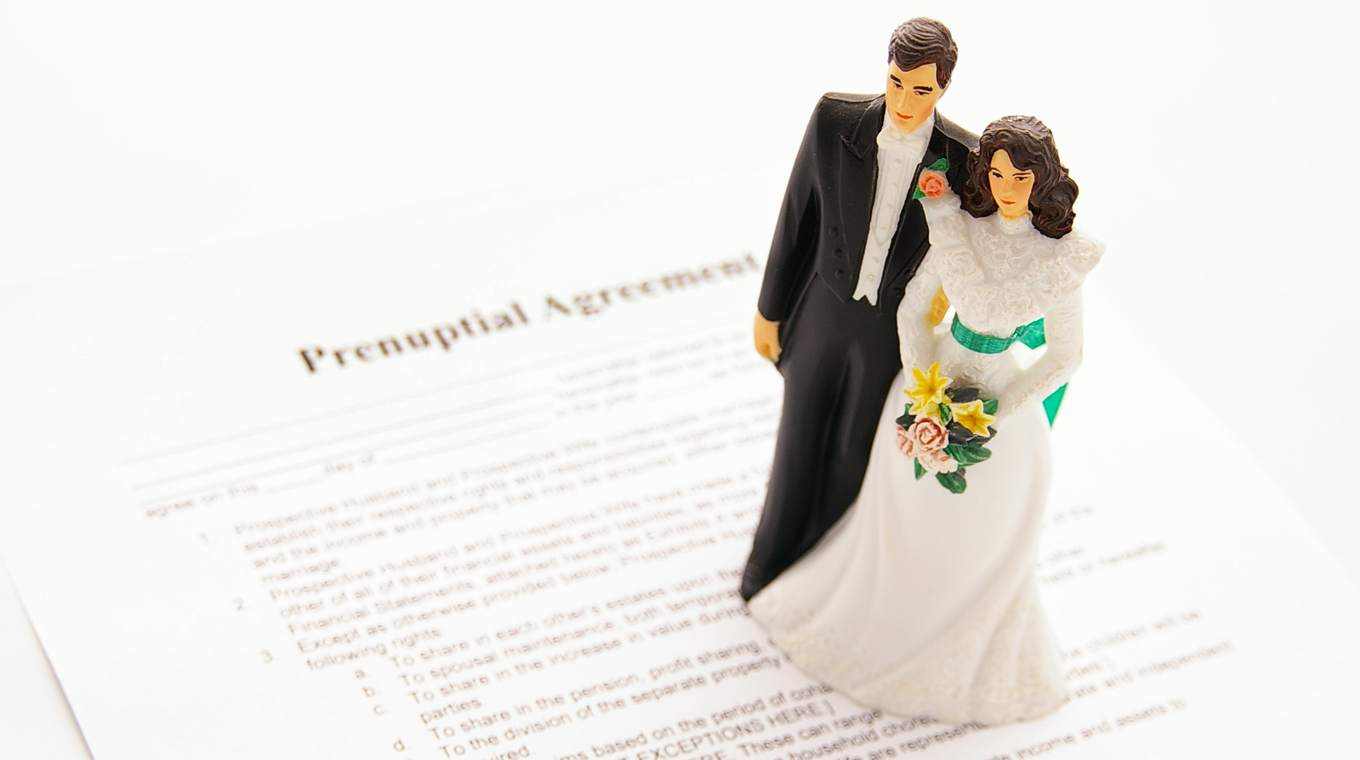
In this article
A prenuptial agreement, or prenup, is a contract entered into before marriage by two people that outlines how assets will be split should the couple later divorce after marriage. Once only thought to be for the wealthy, more people are opting for prenups because they are marrying later in life after they have achieved certain professional and financial success.
Divorces where the parties disagree on financial issues often cost a lot more time and money and come with huge emotional tolls. The goals of a prenuptial agreement are to decide — while parties are still in love and in agreement — on issues such as how assets (and debts) will be distributed in a divorce. The idea is to ultimately reduce conflict when the love is lost between the parties.
How much does a prenuptial cost?

For straightforward situations where the finances are easily agreed upon and each party agrees to what is and isn’t theirs, you can expect to pay anywhere from $1,200 to $2,500. The costs include the time of the attorney who is drafting the prenup as well as the cost of a second attorney to review the document for the person signing it. My marriage had a prenup, and I was advised to seek my own counsel to ensure there was no implied conflict of interest.
The attorney drafting the prenup has the bulk of the work, consulting with one or both parties prior to drafting the document and then the time to actually write it and execute it. The second attorney is there to advise the signing party of what rights they are retaining and what exactly they are signing away. In my case, the cost for my attorney was $750 for his time to review the document and consult with me about his findings.
Should you sign a prenup?

This is the big question, right? If the person loves you and is marrying you in good faith, they shouldn’t be concerned about protecting their assets. Katie Desmond, mom of two, recalled her feelings when being presented with a prenup. “I couldn’t believe we were talking about divorce when we just got engaged," she told Mom.com. "It was really confusing.” At the same time, if you are the person who has worked hard for what you have, you’ll want to preserve what is yours.
Against my attorney’s recommendation, I signed a prenup. I was pregnant and scared, and my ex was 12 years my senior and well into his career. Speaking from experience, a prenup can have a negative effect on your relationship.
“Discussing the terms of a prenup is in a lot of ways pre-planning your divorce," family attorney Agnes Olechno told Mom.com. "It's a really tough conversation to have when you're supposed to be planning the happiest day of your life. Having those conversations can cause a lot of stress, tension, and resentment between couples.”
For me, I felt cornered having to sign it under the circumstances we found ourselves in. Especially because I left my career to be a stay-at-home mom, I felt even more vulnerable to what was happening.
Pros and cons of prenuptial agreements

The benefits of a prenuptial agreement lie in preventing disagreements in a divorce. The more a couple disagrees in a divorce, the more time is spent with attorneys and in court, driving the costs of the divorce well beyond the cost of the prenup. When a prenup goes uncontested, it can also reduce the emotional stress that happens in the divorce and both parties can ideally move on faster.
The cons of the prenuptial agreement is that it can create a lingering feeling of distrust in a relationship. Additionally, it can discount how a spouse can affect the growth of a career or assets during a marriage that they later have no right to per the terms of the prenup.
Not every prenup goes uncontested. “Courts will, at times, nullify prenups, although it is not a common occurrence," Olechno says. "Prenups will typically be nullified under the following circumstances: The agreement is fraudulent, the agreement was coerced, signed under duress, or signed without mental capacity, or the agreement is unconscionable. Each state has different standards on what grounds someone can overturn a prenup.”
Part of the reason my divorce was so costly is that I contested my prenup based on coercion and duress while pregnant. I’ve been asked by family and friends on more than one occasion about whether I’d ever sign another. The truth is, I do believe that prenups have a valid place in modern marriages; I just don’t feel people should believe they have no choice in the matter, like I did.
To hear experienced insight from divorce attorney Jonna Spilbor on signing a prenup, check out this episode of Divorce Tips:




